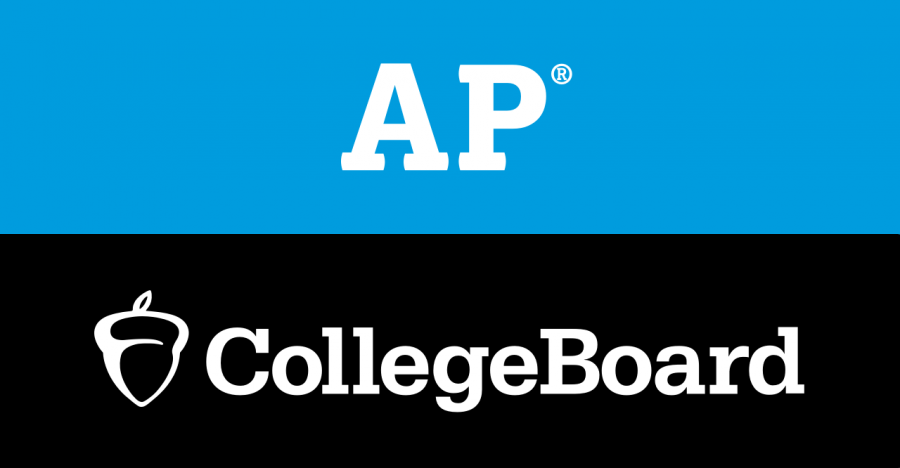A Guide to AP History Courses
Though rigorous and demanding, AP courses provide an in-depth examination of a subject, and introduce students to new ways of thinking.
June 8, 2020
At Northport High School, students have the option to take Advanced Placement (AP) courses. These rigorous and demanding courses provide an in-depth examination of a subject, and introduce students to new and different ways of thinking. A great amount of effort and organization is needed to maximize success in these courses.
Here are descriptions of AP European History, AP World History, and AP United States.
AP European History
Teacher: Mr. Greenblatt
Students: Sophomores
The following are direct quotes from Mr. Greenblatt in response to the indicated questions.
How would you describe the workload for your class?
Regular reading of the assigned text is essential to achieving success in the class during the school year and on the AP Exam in May. Students should expect to spend, on average, one hour each night on reading, proper note taking, and reviewing the assigned pages in the textbook.
How do you organize the information you teach?
The course is a survey of modern European History (approximately 1350—present day), and offers students the opportunity to study topics ranging from the Renaissance to the European Union.
Additional information on the material covered in AP European History can be found on the College Board Website.
What skills can a student learn or improve on by studying history at the AP level?
Students will learn the skills used by historians by studying primary and secondary source evidence, analyzing a wide range of historical perspectives, and expressing historical arguments in writing.
What do you think students should know before taking your class?
AP European History is a fascinating and extremely rewarding class. It is designed for highly motivated students who are willing and able to make a genuine commitment of time to complete course assignments.
AP World History
Teacher: Mr. McCullough
Students: Sophomores
The following are direct quotes from Mr. McCullough in response to the indicated questions.
How would you describe the workload for your class?
On average one hour of work a night but that is every night of the week, including time studying for exams. That is to get an average grade in the class, if you are interested in getting higher grades you would probably have to put more time in.
How do you organize the information you teach?
The Class is organized [into four] time periods.. There are five themes.. We use these themes to look at each time period and civilization. The course has changed this school year, it is just 1200 ce to the present, prior to the 2019 school year it was from the Neolithic period 12,000 bc to the present. For students it is much more manageable now because Northport has always presented the course in one year (many schools do the course in two years). Prior to 2019 it was very difficult to cover all that material in one year, now it is more feasible.
Additional information on the material covered in AP World History can be found on the College Board Website.
What skills can a student learn or improve on by studying history at the AP level?
Note taking skills help, you need to read information and figure out what is important and copy that information down. Managing your time is important, with work in other courses you have to make enough time to read and then study your homework because there are usually quizzes on your homework and that is the hardest part of the course, many students have commented over the years. Study skills are also important, take the time to write out possible essay questions ahead of time and study them, you have to go over the materials numerous times in order to remember it for test day.
What do you think students should know before taking your class?
It is a huge commitment, you have to enjoy history and keep up with the work. If you fall behind it is difficult because the course moves very quickly and there is an enormous amount of history to cover in one year. You should ask and answer questions in class, this will help your understanding and will make you part of the class. Most college courses are lecture and question/answer based (most class days are like that), there are some projects and group work but not very often. There are around 4-5 tests in a quarter therefore you will be preparing for an exam that will have small amounts of information from numerous topics and readings, you have to get used to memorizing information for numerous civilizations in one test. Extra help is given throughout the week but especially in the morning of an exam or the day before, it is helpful to attend them and they are usually before school.
AP United States History
Teachers: Ms. Schachter and Mr. Turner
Students: Juniors
The following are the opinions of Alexandra Weber, a current AP United States History Student.f
The Workload
Students should devote a generous time to thoroughly completing assignments (which include notes, comprehension questions, and review of the material) in order to be prepared for class discussions the next day. Tests and quizzes are comprised of AP-style questions and require students to have a solid understanding of the material.
How to Organize the Material
The information presented in AP United States History is organized into nine time periods. These periods, which may overlap, are further organized into historical trends. Students should refer to the Key Concepts when reviewing the material. The Key Concepts highlight the most important information, and are also helpful when taking notes. The Key Concepts are usually given to students by their teacher, but they can also be found online.
Additional information on the material covered in AP United States can be found on the College Board Website.
Skills Learned by Studying History at the AP Level
Students become comfortable taking timed exams, and develop document analysis skills. AP History courses require students to organize and study the information in the manner best suited for them, and as a result, students learn to take initiative in their own learning experience.
What Students Should Know Before Taking the Class
Students should take time to consider who they are as a student. Students who want to challenge themselves, but have struggled in their previous history classes and with organization, time management, and/or analysis skills, should be willing to put in extra effort for this class. Students who have achieved highly in their previous history classes should expect to have to work harder to attain the same results. Students should research the class structure and become familiar with the format of AP questions before the start of the class. Knowing this information ahead of time will make the class easier from the start.
Tips for Students Taking AP History
General Organization
Binders are helpful; keeping papers in chronological order is useful for future studying. Binders should be cleaned out after each unit. Older handouts can be stored in an expandable paper organizer. It is essential to mentally organize the material with time periods. Timelines can be useful, as they assist in visualizing historical progression.
Note Taking and Other Homework Assignments
Students should give themselves a set amount of time to complete assignments. Most teachers suggest a minimum of one hour. Students that feel like they’re spending more time than is needed on assignments may be copying too much information or working in a distracting environment. Taking notes before completing other homework (while the brain is still ‘awake’) is best.
Another note taking strategy is reading one paragraph at a time and then writing down the most important information from that section. This prevents copying word for word. Using highlighters or different colored pens can make notes easier to read later.
As mundane as it may be, note taking is a required part of AP history courses. Notes are a useful reference in class, and a valuable tool when studying for an exam. In that way, it is important that notes are written legibly.
Videos
Students struggling with any aspect of an AP history class, such as time management or effective note taking, can find a YouTube tutorial. When readings are confusing, there are an abundance of videos that can summarize a topic. CrashCourse offers a playlist of videos for each of the three courses mentioned in this article. Other AP history teachers and students also post helpful content.
Studying
Last-minute studying should be avoided. Many tests cover a substantial amount of content, and it can be difficult to review all at once. Khan Academy is a helpful website for reviewing material and practicing AP style questions. Khan Academy provides articles, videos, and practice quizzes and tests. AP history review books, which can be found at a bookstore or online, can be helpful, especially if purchased at the beginning of the year. While students are not permitted to write in school-issued textbooks, they can take notes in review books. Creating flashcards or Quizlet sets for assignment questions is helpful for future studying. In addition to studying historical facts, it is integral to observe historical themes that could be worded into essay questions. While it is never too early to start reviewing the material for the AP Exam, a good time to start organizing information is two months prior to the exam.
Lastly, it is important to remember that while AP Courses may be challenging, fellow students and teachers are always willing to help. Good luck with future exams!


